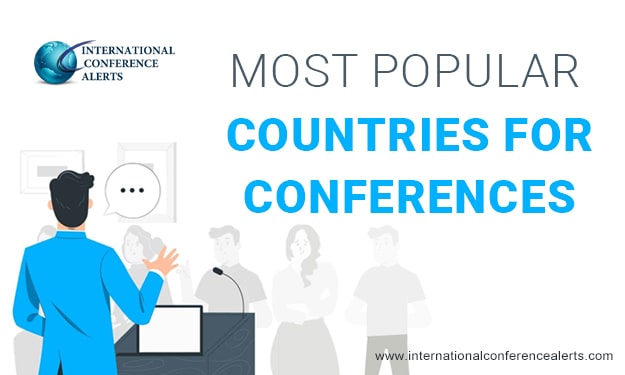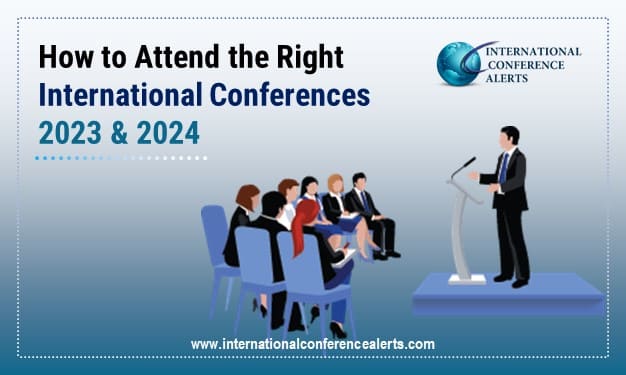Conferences are the best place for disseminating research findings. Attending a conference where a concentrated group of people with similar interests in a discipline, topic, or area of inquiry will also be in attendance and presenting your findings to them is a great way to gain reputability. Such presentations allow for immediate feedback and networking opportunities. For all researchers, especially those who are at the beginning of their careers, conferences offer the best opportunities to interact with one another and meet those with whom you could potentially collaborate.
Your research is finally over. The data was collected, analyzed, and written up. Now the question of what the best way to disseminate your findings is, arises. A presentation of one’s research findings at a conference will allow for the relatively rapid dissemination of those findings compared to a peer-reviewed publication. In addition, it allows quick feedback from others interested in the same field and can stimulate further collaborative work. However, the thing that a lot of researchers struggle with is finding the best conference to present their findings at. This article offers crucial tips on how you can make this decision effortlessly.
- Choosing The Right Sort Of Academic Conference (Open Access or Otherwise) Depending On The Status Of The Publication Of Your Research Work
Presentations at conferences should generally take place before the publication of the study. Once published in a journal, most conference organizers will be hesitant about accepting your research for presentation. Regional events tend to have a more liberal approach to this rule. Alternately, there are also those journals that will not accept research papers that have been presented at conferences and will insist on embargos before publication. This decision cannot be taken lightly.
Fairly early in your career, you can expect invitations to high-level open access conferences. Be wary that many of these events are designed to make a profit for the organizers and may offer little academic merit. Make sure you know who the organizing committee represents. A nationally or internationally specialized group may be considered trustworthy. The best way to avoid choosing predatory conferences is to subscribe to our international conference alerts that won’t cost you a single penny.
- Think About The Format Of The Presentation
The presentation can be given in oral form or in poster form. There are valid reasons for choosing both. The organizers will have limited places for oral presentations and, to a certain extent, for posters as well. Oral presentations are more flexible with information that can be given visually and orally. More advanced presentation formats allow for the incorporation of advanced media to help elucidate points better. Above all, the presentations are a chance to be in front of a live audience, to be seen and heard, and to participate in a speech about your findings. However, this is only one niche, and they will compete for an audience with other conference activities. A poster will usually give you the opportunity to speak to those in attendance, either during poster time (most often during breaks in the conference program) or a dedicated time slot to talk about your findings. The main advantage is that it usually stays in place for the duration of the conference, allowing many participants to see your work. However, the opportunity to introduce yourself and your work is limited to your availability to show up with the poster.
- Consider The Potential Size Of Your Audience At The Conference That You’re Planning On Presenting
Presentations can take place in local, national, or international contexts. There are those organizers who will allow presentations from a large international event to be presented locally as well provided previous presentations of the same work must be declared. Different meetings have different audiences. Larger conferences offer crucial opportunities to be known to a wider audience from your own discipline and also associated ones. However, the results may be more relevant to a local audience and more easily translated into practice.
- Consider The Potential Of The Conference To Elevate Your Reputation By Presenting In It
There are many different academic sites to choose from. One of these venues is a conference organized by a world-class academic event organizing firm in your discipline. These events offer incredible opportunities to share your work with other academics, as well as to get input and feedback on the research you are doing. Professional conferences also provide excellent networking opportunities and are a good first step towards gaining some name recognition. You can send in your proposals to reputable conference organizers to present your work at their national and international conferences. Inquiring of your colleagues about which conferences have the best reputation in your discipline and then visit the websites of these events to find out more about the proposal submission process. Large professional organizations usually hold a large general conference once a year, and some hold especially thematic and smaller meetings or conferences at different times of the year.
Typically, when you submit your proposal for a conference presentation, you get to choose from various options. Full workshop papers offer you the opportunity to write a comprehensive research paper and present the results. Many professional organizations have a peer review process to assess proposals, and many publish full papers in a forum. These generally count in the process of retention, tenure, and promotion, although they are usually not as important as publications in peer-reviewed journal articles. However, it’s a great way to write early drafts of your research, market yourself, and gain experience writing full research articles. You can take advantage of these presentation opportunities to get feedback on your article. As far as larger conferences are concerned, if your paper is accepted, you could be placed in a session with your peers presenting on a similar topic, where your session will be chaired.
- Are The Rules & Format Of Presentation Imposed By The Conference, To Your Liking?
Once you’ve selected the conference, prepare to submit your research by following the submission guidelines well in advance. Popular, high-level conference organizers usually require that abstract submissions be carried out and completed roughly six months before the date of their proposed conferences. Abstract submission guidelines are most often available on the websites for a selection process based on peer review. The abstract must meet word count limits, scientific specifications, and keywords for acceptance as a poster/oral presentation. Based on years of work and interdisciplinary collaborations, several aspects of interest may exist for the presentation. Choose that piece of research that you intend to deliver to your target audience, depending on the stage of completion. Follow the guidelines for abstracts or conference proceedings and submit them by the deadline.
- Weigh The Expenses You Will Incur Against The Reach You Could Potentially Achieve For Your Research
Most organizers offer junior, early-career researchers and scientists the provision to apply for travel grants if their abstracts are accepted for presentation. Before submitting your abstract, however, check the costs and identify your funding sources. Conferences located abroad and interstate will have additional travel costs, including airline tickets and hotel accommodation. Consider in advance whether the budget allocations for research trips match the expenses for the chosen destination. A conference alerts subscription will allow you to learn about all these details effortlessly.
- Don’t Lose Sight On What You Truly Want To Get Out Of Presenting Your Research At A Conference
Along with these questions, think about what to expect from a conference presentation. Conference presentations almost always lead to more conference presentations. But if you want your presentation to lead to something, then be clear in your mind and whether the event you are targeting will get there. Some reasons for presenting at conferences include –
- refining the beginning or the end of an article;
- acquiring feedback on research ideas (no matter which stage of the research process);
- increasing your list of professional contacts;
- recruiting research partners to assist you in your project;
- reflecting on your discoveries;
- helping with data analysis;
- improving your chances of obtaining research funding; job search or other advice;
- seeking avenues for career progression;
- meeting key people in your field.
Presenting your research work at an international conference affords you the opportunity to disseminate your findings, network with other researchers, and develop your academic background. While all conferences have their inherent differences, there are basic strategies to presenting your research in the best manner possible. This will be different depending on whether it is an oral presentation or a poster presentation. With proper guidance and preparation, you can make sure you not only choose the best conference for you to present your research at but that you also deliver a top-class presentation


